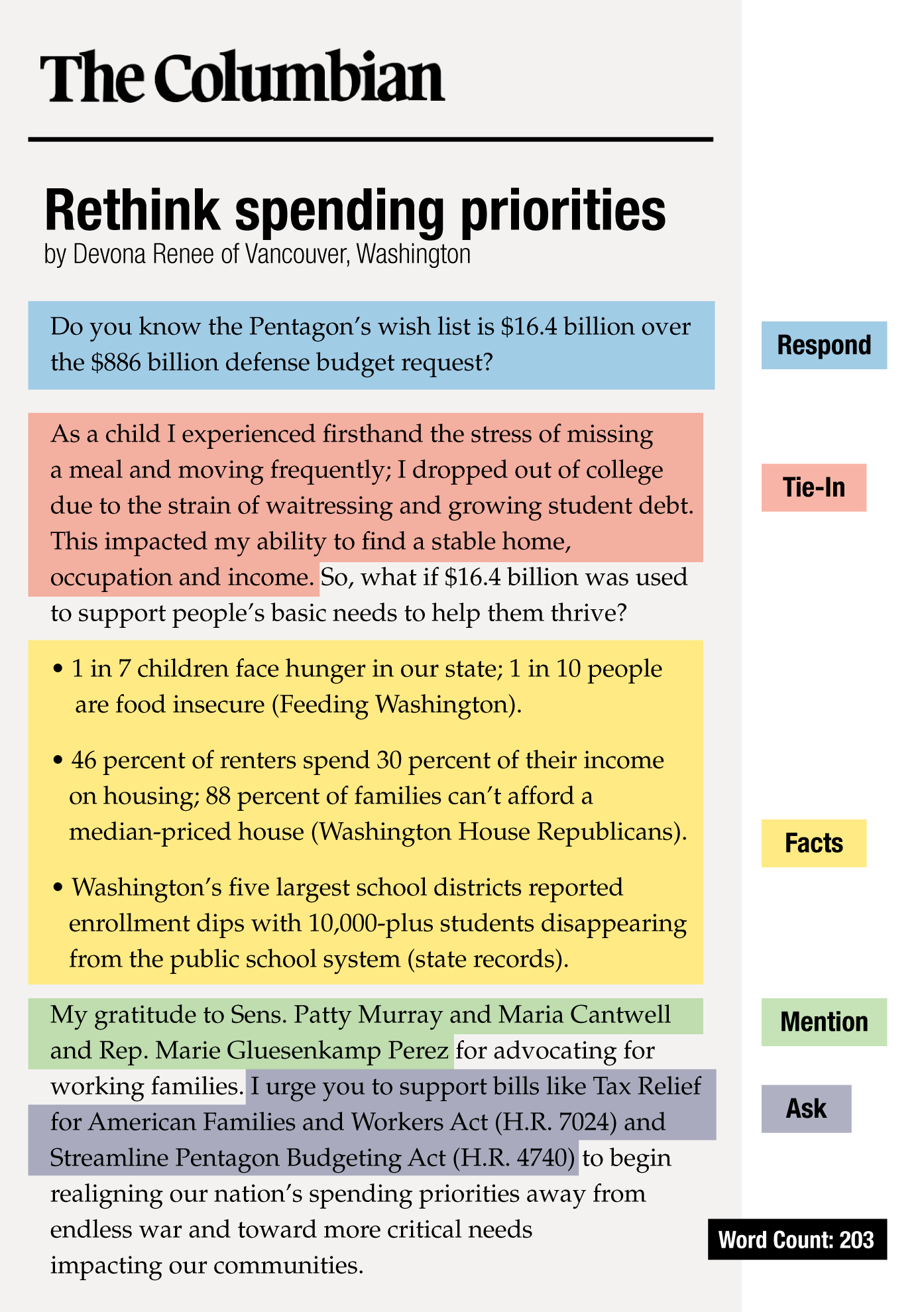Publishing letters to the editor and op-eds is a great way to get the attention of your members of Congress. But first, you need to write a piece that tells your story – not just the facts.
Here’s your RAFT for engaging with the media:
Respond to Recent Reports
Find a news article or story that relates to the issue. Make sure you’re responding to a recent story or topic – no more than a few days old.
Ask for Action
Make a clear and specific ask to YOUR policymakers. It is critical that you mention your members of Congress by name or else they won’t see it.
Find the Facts
Illustrate your argument with one or two facts. Statistics can be helpful in moderation, but too many statistics can be confusing. Remember, your letter should tell your story!
Tie in Your Personal Story
Bring in your personal connection or moral approach to the issue. State your connections to the community as they’re relevant to the points you’re making and be sure to tie your letter to local issues in your community.

